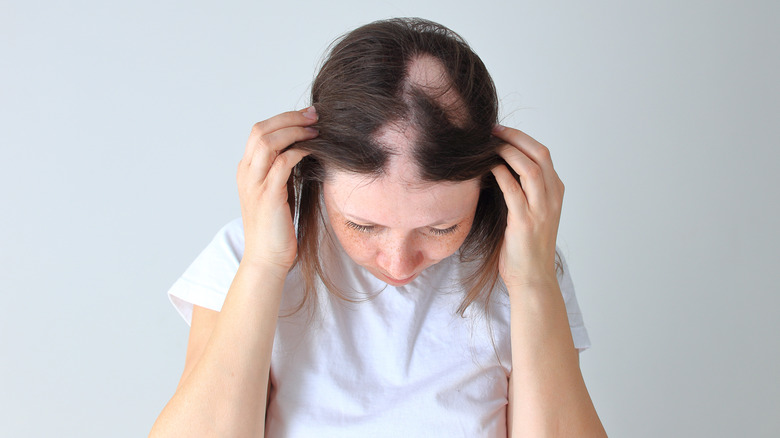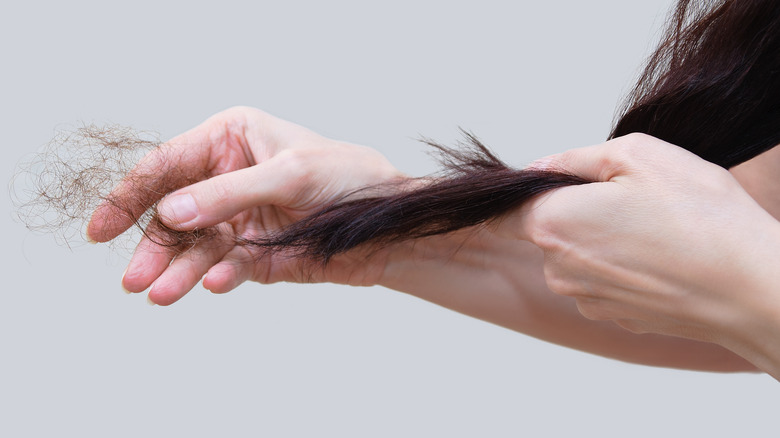Here's What Might Be Causing Your Alopecia
Hair loss can leave us, well, at a loss. If you are experiencing hair loss of your own, know that you are not alone. According to a 2014 study conducted by the International Society of Hair Restoration Surgery, approximately 35 million men in the U.S. suffer some type of hair loss. But women are not immune to this often telling sign of aging either, as approximately 21 million women in the U.S are also affected by hair loss (via Dr. Anthony Farole).
Hair loss, or alopecia, as referred to by the medical community, affects a large percentage of us all. As outlined by experts at the Mayo Clinic, there are different types of hair loss including frontal fibrosing alopecia (a receding hairline), traction alopecia (hair loss caused by wearing tight braids, curlers, or cornrows), and alopecia areata (patchy baldness). So what factors trigger hair loss?
One possible source could be stress. Whether from a poor night's sleep or a difficult breakup, it is not uncommon for hair loss induced by stress to occur in the months following a recent shock or trauma.
Stress, diet, or hormone changes are just a few possible causes of hair loss
"Our bodies perceive mental stress the same way it perceives physical stress, and any dramatic stressor on the body can cause hair growth to become arrested," Michelle Henry, a dermatologist based in New York tells Health. "And when hair growth is arrested, it sheds," she explains. Fortunately, stress-related hair loss is often temporary.
Another reason your shower drain might be clogging more quickly than usual could be due to your diet. WebMD states that nutritional deficiencies such as a lack of iron or vitamin D can result in hair loss. Beverly Hills-based dermatologist Tsippora Shainhouse suggests how you can fix this issue. "See your primary care physician to treat these, in order to give your hair the best chance of growing back," Shainhouse says. She adds, "Develop a healthy eating schedule that includes food-derived vitamins and nutrients, and ... enough protein."
Identifying the cause of your hair loss, whether it's temporary or permanent, sudden or over a longer period of time, can be a challenge. In addition to stress and diet, experts at Health say that alopecia can also be a result of genetics, changing hormones, sudden weight loss, or a symptom of other conditions like lupus or thyroid disorders. You may find it beneficial to make an appointment with your doctor to further explore causes and treatment options. In the meantime, know that you are not alone in dealing with this very common, yet still very sensitive condition.


